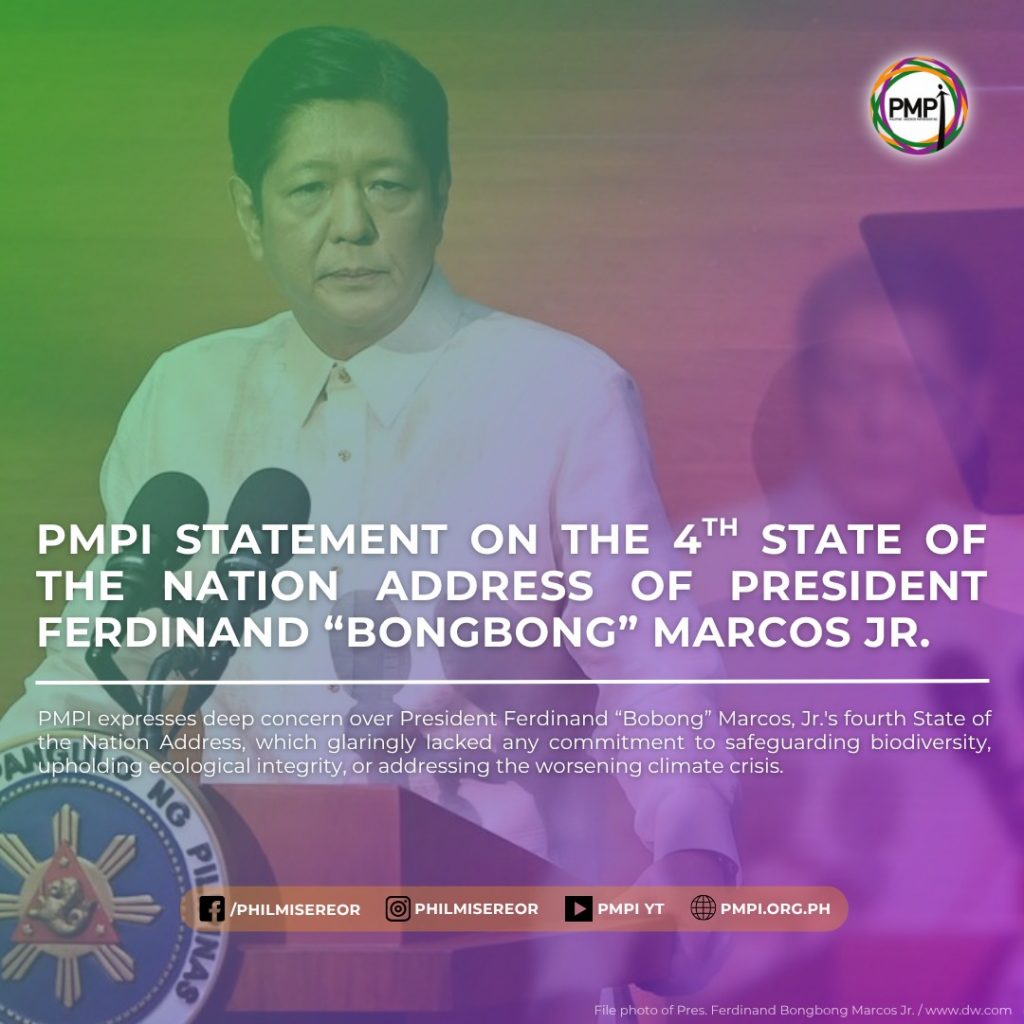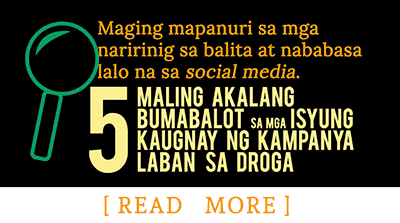PMPI expresses deep concern over President Ferdinand “Bobong” Marcos, Jr.’s fourth State of the Nation Address, which glaringly lacked any commitment to safeguarding biodiversity, upholding ecological integrity, or addressing the worsening climate crisis. The omission of urgent measures to halt environmentally destructive practices, such as large-scale mining and harmful development projects, is deeply troubling.
Equally alarming is the absence of any recognition of human rights violations faced by environmental human rights defenders and indigenous peoples. These communities, which courageously protect their ancestral domains, continue to be among the most vulnerable to harassment, displacement, and violence, issues that were entirely ignored in the President’s speech.
The President promised to enhance and uplift the lives of Filipinos through a range of incentives and public services, including investment in health, education, farm-to-market roads, bridges, and other infrastructure. Billions are allocated to fund projects that, in principle, aim to foster a more “equitable” society under the banner of “progress and development.” However, his promises remain temporary fixes or mere rhetoric. Notably, the President himself admitted at the outset of his address that last year’s performance fell short of expectations, casting doubt on the credibility and effectiveness of the government’s proposed solutions.
“Yesterday’s State of the Nation Address by the President is detached from the live realities on the ground,” said Yolanda Esguerra, PMPI National Coordinator. “Over the past weeks, three consecutive typhoons have ravaged the country—causing widespread flooding, claiming lives, and destroying homes and livelihoods. Yet the President failed to acknowledge this unfolding climate crisis in his speech.”
“Equally absent were the environmental commitments echoed during last year’s address. In their place came emotionally charged appeals and token pledges in areas like health, education, and infrastructure. Grandiose promises may sound reassuring, but they do little to advance resilience or genuine sustainability. This government remains entrenched in ‘business as usual’.” Ms Esguerra added.
PMPI firmly believes that sustainable economic development should not come at the expense of the poor, marginalized individuals, Indigenous Peoples, or local communities. True progress can only be achieved when the protection and restoration of nature becomes a central tenet of our economic systems and political agendas.
Nature is not merely a backdrop to development—it is its foundation. It sustains our food systems, secures livelihoods, and supports the health and wellbeing of our people. A resilient and inclusive economy depends on thriving ecosystems and empowered communities. Without them, even the most ambitious development plans are destined to fail.
No business interest—no matter how it’s framed as a development initiative—should override the well-being of people and the integrity of nature. Yet our ecosystems continue to deteriorate at an alarming rate, sacrificed to profit-driven operations such as mining, dredging, quarrying, dam construction, and logging concessions backed by powerful corporations.
Government regulations not only fail to prevent this destruction—they enable it. These flawed policies consistently compromise biodiversity and jeopardize the lives, livelihoods, and rights of local communities. This pattern of regulatory neglect must be reversed. Our shared future depends on placing ecological protection and social justice above unchecked economic gains.
PMPI urges President Ferdinand “Bongbong” Marcos Jr. to ground his leadership in the lived realities of the Filipino people. Address the root causes of today’s social challenges—not through lofty promises or economic posturing, but by listening to and reflecting the voices of marginalized and vulnerable communities.
The President must resist the influence of big business interest groups that prioritize profit over people. Instead, he should amplify the voices of those who have been left unheard—both human and nonhuman. This includes protecting the environmental rights of human rights defenders and acknowledging the inherent rights of nature.
As a concrete step toward this commitment, PMPI calls on the administration to designate the Environmental Human Rights Defenders Bill and the Rights of Nature Bill as priority legislation.

